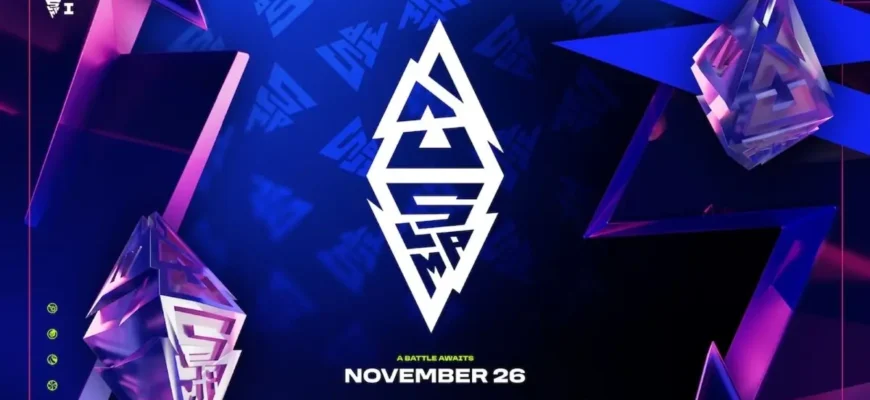The global landscape of competitive esports, a vibrant arena where skill often transcends borders, periodically confronts the stark realities of international finance and geopolitics. A recent clarification from Relog Esports, the organizers behind the RES Unchained 2025: BLAST Slam Europe Qualifier for Dota 2, has illuminated this intersection with particular clarity concerning participation in the esteemed BLAST Slam IV main event.
The Core of the Matter: Eligibility Beyond Skill
At first glance, the news might have appeared straightforward: a blanket ban on Russian organizations and mixes. However, Relog Esports` statement offers a crucial distinction, revealing a more nuanced, albeit equally challenging, scenario. The qualifiers themselves, RES Unchained 2025, are openly accessible to “all teams and players from all regions.” This inclusive approach ensures that competitive merit remains the primary filter for initial participation.
The complexity arises when a team progresses beyond the qualifiers and seeks entry into the main event, BLAST Slam IV. Here, the criteria shift from purely in-game performance to encompass the practicalities of international financial operations. Relog Esports outlined two specific requirements for main event eligibility:
1. BLAST must be able to contact and pay the organization, which is registered in a jurisdiction where there are no restrictions on international transfers.
2. The team must have a leader or representative who is registered in a jurisdiction where there are no restrictions on international transfers.
This clarification underscores that the barrier isn`t a direct competitive prohibition but rather a logistical one, rooted in the intricate web of international payment systems and regulatory frameworks. It is a testament to the modern world`s peculiar ability to facilitate global digital competition while simultaneously fragmenting its underlying financial infrastructure.
The Practical Implications: A Hurdles Race for Aspirants
For Russian teams and players, this means that while their journey through the RES Unchained 2025 qualifier may begin with enthusiasm and skill, the path to the main stage of BLAST Slam IV is fraught with administrative and corporate challenges. A team composed entirely of players residing within Russia, or registered under a Russian legal entity, would, under these conditions, face a significant hurdle regardless of their competitive prowess. To proceed, they would need to either:
- Reregister their organization in a jurisdiction with unrestricted international transfer capabilities.
- Designate a team leader or representative who is legally registered in such a jurisdiction.
This is, to put it mildly, not a minor administrative adjustment. It demands a restructuring that transcends team rosters and delves into legal and financial frameworks. It asks players and organizations to navigate a maze of international corporate law and banking regulations, potentially incurring significant costs and requiring external expertise, all while striving to maintain their competitive edge.
The Broader Canvas: Global Esports and Geo-economic Realities
The situation with BLAST Slam IV is not an isolated incident but rather a recurring motif in the modern esports narrative. As professional gaming matures into a global spectacle, it increasingly mirrors the complexities of traditional international sports, business, and politics. The ideal of a purely merit-based global competition, where talent is the sole determinant of success, often collides with the very real constraints of national and international policies. It`s an interesting paradox: the internet allows instant, borderless digital interaction, yet the physical world`s rules on money movement remain firmly in place.
This scenario forces a critical examination of how tournament organizers, players, and national esports federations adapt. Do players relocate en masse? Do organizations establish complex international corporate structures? Or do alternative, perhaps regionally focused, competitive circuits emerge to circumvent these global financial chokepoints? The answers will shape the future trajectory of competitive gaming for years to come.
A Glimmer of Irony: The Qualifier`s Open Door and the Main Event`s Locked Gate
There`s a subtle irony in the open invitation to the qualifiers. It allows every aspiring team, regardless of their nationality or financial jurisdiction, to prove their skill. Yet, for some, the very act of winning becomes the gateway to a bureaucratic obstacle course. The thrill of competitive victory might quickly be tempered by the cold reality of needing a new corporate registration or an internationally compliant representative. It`s a pragmatic approach, certainly, designed to safeguard the integrity of prize distribution for the main event, but it highlights the often-unseen layers of logistics that underpin what appears to be a simple contest of skill.
As the competitive season progresses, the esports community will undoubtedly observe how teams navigate these parameters. It’s a testament to the resilience of professional gamers that they not only master complex in-game strategies but are increasingly expected to conquer the equally complex intricacies of global finance to reach the pinnacle of their sport.









